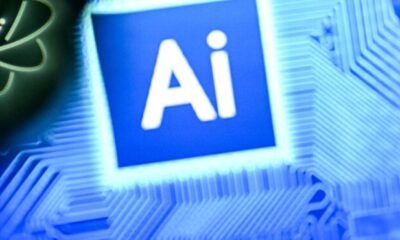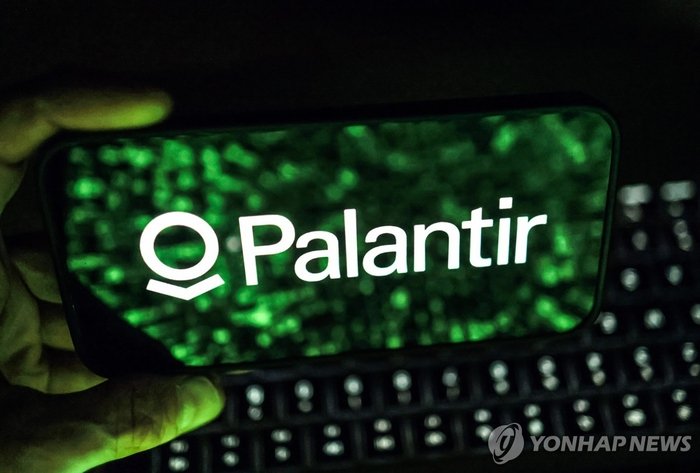The fear of the unknown is what a lot of us are dealing with. Is artificial intelligence going to eliminate our jobs and use our data against us, like so many worry?
Or will the good outweigh the bad, like using search engines for medical journals, going 24/7 through them to find patterns and maybe lead to a cure for cancer. Who knows?
And if all of this does happen, how do you regulate it to begin with?
NBC Connecticut’s Mike Hydeck spoke with Hartford Mayor Arunan Arulampalam (D), who recently spoke at a Meta conference about AI and government.
Mike Hydeck: So first up, can you use, to your knowledge so far, because it’s such a nascent industry, artificial intelligence and local government, and can it speed up things like permitting process? And can it help with like replacing old water lines. Do you have to search the whole state?
Arunan Arulampalam: It’s something we’re already doing in the City of Hartford. You know, we’ve got this technology that we put into our city trucks to go around city streets and check out when there are divots in streets, when streets are kind of getting broken down. So we can get on top of fixing up those patches, making our streets better along the way. What we found out is, if we wait for people to call into 311, it tends to be certain neighborhoods, certain people. This kind of democratizes it, so everybody in every street, whichever street needs help the most, gets it first. And so that’s one small example. We’re expanding out the ways in which we’re using it in government. But you know, I want to talk to that fear of AI. I think what the fear is so many of us have is that this is going to take my job. It’s going to change my way of life. And I’ve heard a few people say AI is not going to replace you. Your job is not going to be replaced by AI. It’s going to be replaced by somebody who knows AI. And I wanted to make sure that Hartford residents, Hartford-area folks, are not seeing their jobs replaced, that our way of life isn’t changing, that we’re up at the front end of this challenge, that we’re adapting first before other communities. And so we’re creating this AI center to be the way to build out a workforce that’s among the most advanced in the nation in the years ahead, to deal with the technological changes of tomorrow.
Mike Hydeck: So where’s that center going to go? How’s it going to be funded? When’s it going to be open?
Arunan Arulampalam: All good questions. We are working on an application right now to the state through the innovation clusters program. We’re hoping to build it right behind Dunkin’ Donuts Park. There’s a whole community coming together with housing, with a couple other businesses, and we’re hoping to turn that old data center that’s there, we’re hoping to knock that down and turn that into a little bit of housing and an AI center that will bring together our institutions. But you know, wherever we put it, the goal is to use all of the ingenuity and innovation coming out of our big corporations. And so we’ve got all the big insurance companies signed on, the Aetna and CVS, The Hartford, Travelers, Cigna. We’ve got Hartford HealthCare signed on, Stanley Black and Decker, saying we want to innovate in this space, but we’ve also got every higher ed institution in the state. It’s then, we’re the first state to do this, to create a consortium of higher ed institutions for AI, and we’re going to lean on that pipeline. We’re going to have those companies innovate in the space, but using folks, the young people coming out of our higher ed institutions, from high school up until graduation, to do the actual innovation. So if you’re working on a product, you go into this space, you develop it in this space using some of our soon to be graduates so they can work on these projects. And we’re hoping by doing that we’re investing in our workforce and giving them the skills they need to be among the most advanced in the country when it comes to AI.
Mike Hydeck: So considering it’s in the application process, it’s likely still a couple years away, at least?
Arunan Arulampalam: Although, we’re hoping to build a beta version of that soon. So I think we’re going to see that, we might not see the building right away, but to us, we don’t need a building to get started. We’re hoping to build a version of that soon and get started using using the City of Hartford as the guinea pig, using some test cases, use cases within the city of Hartford.
Mike Hydeck: So let’s address the fears for a second, too. So AI and all these things that are generated with use troves of data, they find patterns, that kind of thing. From a governmental perspective, say, one of these searches or the conclusions made by an AI engine is wrong. Should there be a way for, or maybe it benefits one party financially better than another. Are there ways, do you think, should be in local government to protest this and say, Look, that wasn’t the right outcome here.
Arunan Arulampalam: Well, that’s exactly why we want to keep this in this contained space. Tech folks would call it a sandbox, and so I mean, the folks who are most worried about data right now are insurance companies, because there are troves of data that they are holding back from some of this innovation, because there’s not a safe space for this. And our insurance companies are signing on and saying, we want to do this in this center. The idea is that you take this data and you take it away from the entity that it’s with, and you put it in a controlled setting. There’s going to be ethical safeguards within that setting. We’re going to have folks who are, you know, very stringent safeguards. We’re going to have folks who are, who are conversant in this and, know, different models of AI. So you’re not just sending it out to some random company to work on this innovation. It is within a very tightly controlled space that the City of Hartford is in, as well as the state. And you can try out a use case in there. You can figure out what the vulnerabilities are, what the concerns are, what the ethical considerations are, first, and then you bring it back and incorporate it into the setting. And at the same time, as I said, you know, you’ve got a workforce of folks building that out, and so say NBC wants to create a product. NBC wants to create a product to ensure that everybody gets the news that they’re looking for based on their interests. Instead of going out to some company, finding some company, and hoping you get it right, and paying millions of dollars to build out that product, you come into this AI center in Hartford, you have kids from UConn, kids coming out of high school. We’re gonna have high school certifications. We’re gonna have workforce training all the way up until they get jobs working on these products. And so what you’re paying for is those stipends for kids here in our city and in our region to be able to learn these skills, to be able to grow this ecosystem. And then it’s gonna attract the best minds in AI to our universities. It’s going to attract companies who want to find workforce that’s ready to use this technology here to the City of Hartford, and so we’re going to build out this workforce that is ready for the technological changes so that Hartford doesn’t get steamrolled by it. That we’re on the forefront of this wave. We’re riding this wave into the future.












































